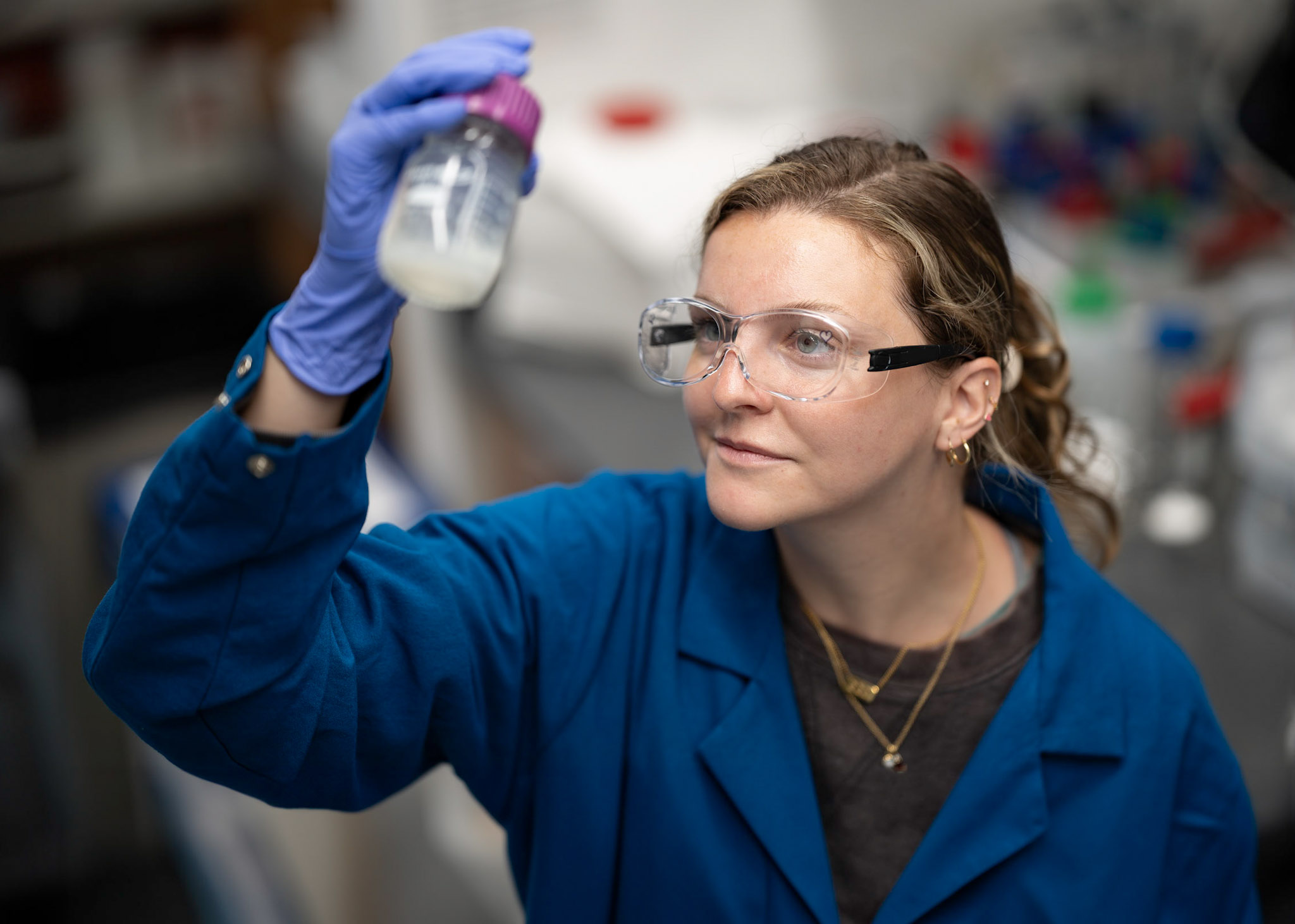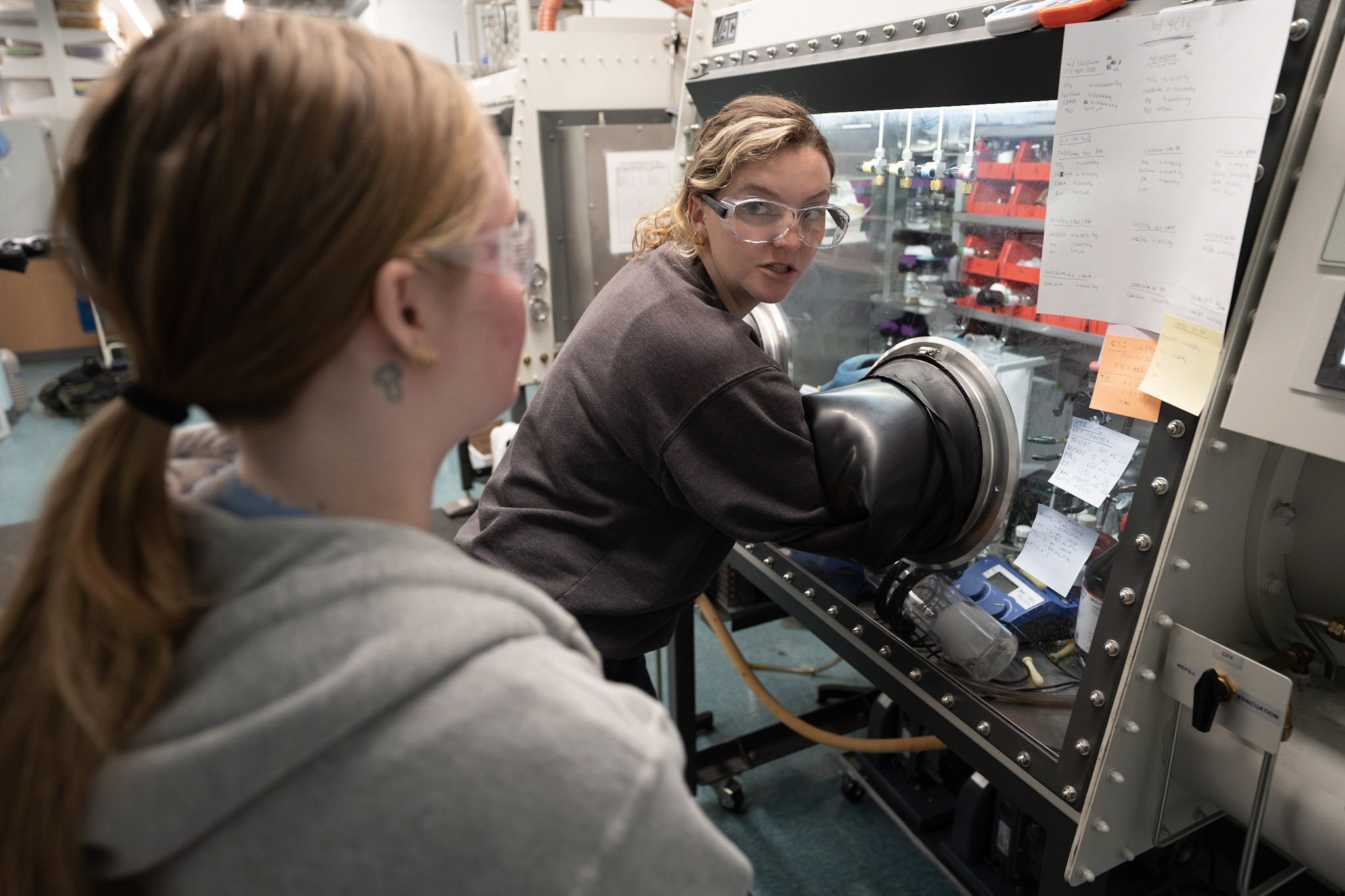Reclaiming use from toxic waste plastics
My name is Nancy Bush and I am a first-gen fourth year PhD candidate in Professor Megan Fieser’s lab at USC. I am a former Wrigley Sustainability Prize winner, and I am so happy to be working with the Wrigley Institute again, but this time as a Sonosky Fellow.
My research focuses on the depolymerization and repurposing of plastics, specifically PVC (like the pipes in your home or the clear bags we can bring to concert venues) and PET (like water bottles, cup lids, etc.). My main research is focused on PVC because, although it is the third most produced plastic in the world, its recycling rate is essentially zero in the United States.

Even though PVC has a recycling symbol number three, it cannot be recycled with single stream waste. At recycling centers, PVC gets mixed in with other plastics, like polyethylene and polypropylene (examples include cleaning supply bottles and Tupperware, respectively). When the mixed plastics go through the high heating process at the recycling center, the PVC thermally degrades and the chlorine in its backbone makes a strong, corrosive acid that corrodes the machinery. Consequently, this is an issue because PVC is currently either improperly recycled and causes a headache for recycling centers, or it is thrown away where it can find its way into our environments and oceans as pollution.
For this reason, I am attempting to remove the chlorine from the PVC plastic in an environmentally friendly way, while forming chlorine-containing and organic products that can have another life beyond the landfill. We recently published on this project, where we were able to successfully dechlorinate commercial PVC products, like toy lizards and clear bags, without making harsh acid byproducts. This summer, I am working to better understand the mechanism by which this chemical reaction occurs. To do this, I am changing the reaction conditions to see how they affect my product on a smaller scale, then tracking these changes over time.
We are very excited because this project has become a jumping off point for other projects in our group in which we can remove chlorine from PVC and replace it with something else, turning this waste plastic into new, useful plastics. I believe that PVC recycling needs all of the interest it can get to tackle the growing number of waste plastic that accumulates in our environment and landfills.

In addition to this, I am working with my REU student, Jessica Bowen, who is helping me with my PET project where we are exploring greener ways to chemically break plastic (which are polymers made up of monomer building blocks) back down into its monomeric form, so that we can reuse them to make brand new plastics. For this project, we test a variety of PET plastics donated to us from local recycling centers, stir it with our catalysts in vials for four hours, and then separate and characterize how much we were able to break down into monomers. We have had recent success in publishing with a technique we tried, so she is helping to probe even greener metals and how different conditions can make different products out of the waste plastic.
I was also able to kick off my summer with a trip across the Trans Catalina Trail with my friends! It was my first backpacking trip and it was absolutely beautiful. I loved my previous trips to the Wrigley Marine Science Center and it was special to be able to connect with the island in a new way. We also came across a large family of bison, which was a breathtaking experience. I am so grateful to the USC Wrigley Institute for giving me the opportunity to explore such a beautiful part of California and pursue my research. I’m so excited to be a fellow!
Nancy Bush is supported by the Diane Sonosky Montgomery and Jerol Sonosky Graduate Fellowship for Environmental Sustainability Research.
